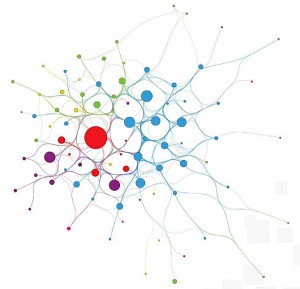June 2017 National eResearch newsletter
Welcome to the June AeRO eResearch Newsletter
From the AeRO CEO
It’s a busy time in AeRO! After the very successful National Forum in May, we are busily preparing for the eResearch Australasia conference in Brisbane 16-20 October. This year’s conference is co-located with PRAGMA and the International Workshop on Science Gateways. The call for submissions closes soon – make your submissions here: https://conference.eresearch.edu.au/abstract-submission/.
AeRO also continues to grow, welcoming our newest Full Member, Geoscience Australia! A major provider of data, tools and services to the Australian research community, GA is strongly focussed on eResearch delivering value for their users. We look forward to working with them.
Dr Markus Buchhorn, AeRO CEO.
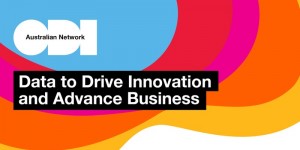 |
Have Your Say on Accessing Govt Data
The Open Data Institute Queensland will host a workshop on Friday, 16 June, providing a golden opportunity to let the Queensland Government know which public data will deliver most value, if published The Queensland Government has asked ODI Queensland to help identify high value government data sets in key industry areas. The workshop, titled, Data to Drive Innovation and Advance Business, will be held in Fortitude Valley, Brisbane. Read more: https://www.qcif.edu.au/index.php/events/293-data-to-drive-innovation-and-advance-business. |
| Pawsey Training for Queensland Researchers
The Pawsey Supercomputing Centre is coming to Brisbane again, offering free introductory, intermediate and advanced supercomputing training for all researchers. Researchers are welcome to attend any session being held at the University of Queensland across 26–28 June. Pawsey training is an opportunity for Queensland researchers using Pawsey infrastructure to up-skill in many areas. It is also an opportunity for researchers who are interested in using supercomputing, data storage or visualisation to find out what Pawsey has to offer. Visit the Pawsey website https://www.pawsey.org.au/events/?date=Jun%202017 for more information and to register. |
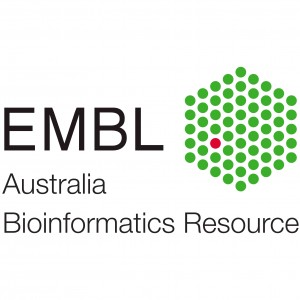 |
EMBL-ABR’s Genome Annotation and Open Science Workshop Series: Reminder
Monica Munoz-Torres, Biocuration Lead and Bioinformatics Scientist at Lawrence Berkeley National Laboratory, where she works in the Berkeley Bioinformatics Open-Source Projects group, will be touring Australia over June/July presenting workshops across EMBL-ABR Nodes in Melbourne, Hobart, Townsville, Sydney, Brisbane and Perth. As well as consulting with local researchers on their own research challenges, Monica will offer workshops tailored for each location in partnership with local presenters who will lead the hands-on exercises and discussions. For more details about Monica see http://www.berkeleybop.org/people/monica-munoz-torres/. For tour and workshop details see https://www.embl-abr.org.au/monicamunoz-torrestour/. |
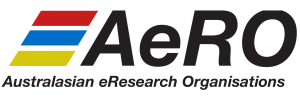 |
We’re hiring! Join the AeRO Team!
Do you have what it takes to play a leading role in eResearch? AeRO – www.aero.edu.au – is seeking an outstanding innovative leader to drive new IT infrastructure and services (eResearch) developments in Australia. · Shape and direct the industry association of organisations that provide the IT services and infrastructure for research and innovation in Australia and New Zealand · National conference responsibility · National advocacy, collaboration and leadership role · Part-time More information at http://aero.edu.au/eresearch-careers/ |
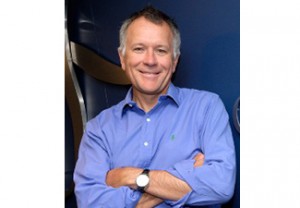 |
Get in Quick to Attend the Winter School in Mathematical and Computational Biology!
Early bird registration closes on Sunday, 18 June for this year’s University of Queensland-based Winter School on 3–7 July in Mathematical & Computational Biology. See http://bioinformatics.org.au/ws17/. Speakers include professors David James (University of Sydney), Susan Clark (Garvan Institute of Medical Research), Dave Edwards (University of Western Australia), Kirill Alexandrov (UQ/IMB), and David Abramson (UQ/RCC). The international speaker line-up includes Harvard’s Professor John Quackenbush, Dr Helen Kilpinen (University College London), A/Professor Nicole Cloonan (University of Auckland), and A/Professor Paul Gardner (University of Canterbury). |
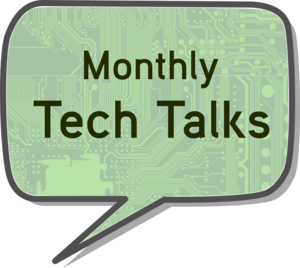 |
July Monthly Tech Talk
The next Monthly Tech Talk will take place on Friday 7 July (3pm AEST) on the topic of Skills and Community Engagement. Speakers include: Belinda Weaver, Software Carpentry Paul Box, CSIRO Chantal Huijbers, Biodiversity and Climate Change VL, Griffith University Mark your diaries – registration will open soon. More details can be found at http://ands.org.au/techtalks. Tech Talks take place in various city locations on the first Friday of each month. They are free of charge and open to all who register. Monthly Tech Talks are an initiative of ANDS, Nectar, QCIF, Intersect, VicNode, eRSA and Pawsey. |
 |
Want to know more about using drones in research?
ANDS is hosting a series of events discussing drones, spatial data and geospatial technology including two webinars in July. Webinar #1 : An eye on legal, ethics, safety & privacy (20 Jul 2017) Webinar #2: Rise of drones in Australian research space (27 Jul 2017) These events are free of charge and open to anybody who uses drones for research or has an interest in doing so. More information and register: http://www.ands.org.au/news-and-events/events/drones-in-research-series. |
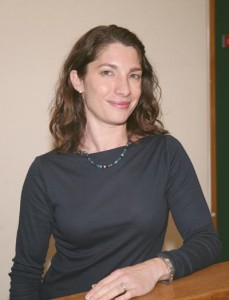 |
Brisbane to Host Workshop on the Data Needs of Health Geography Researchers
A full-day workshop focusing on the data needs of Australian researchers investigating place effects on health will be held at the University of Queensland on Tuesday, 11 July. The Institute of Australian Geographers is hosting this Health Geography Study Group workshop, prior to its conference, also at UQ’s St Lucia campus. The workshop’s invited speaker is Dr Dianna Smith, a lecturer in Geographic Information Systems at the UK’s University of Southampton. Dr Smith conducts research on small area estimation methods to model health outcomes. More information at https://www.qcif.edu.au/index.php/events/297-health-geography-study-group-workshop. |
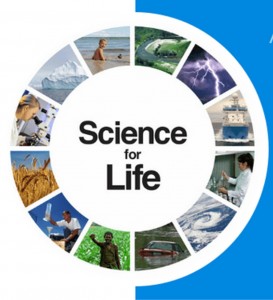 |
Australian Meteorological and Oceanographic Society (AMOS) 30th Anniversary Symposium
Life-changing science: weather – oceans – water – climate. Melbourne Convention & Exhibition Centre, 22 to 23 August 2017. Across the world, 24 hours a day, our scientists are using the most sophisticated technologies to observe, measure and analyse the Earth’s vital signs. Science for Life will tell the story of how their insights and innovations are helping us protect and enhance life. This year marks a milestone for the meteorological and oceanographic professions in Australia, as well as for the broader weather-enthusiast community. Early-bird registration is now open at https://www.ivvy.com.au/event/AMOSSY/. |
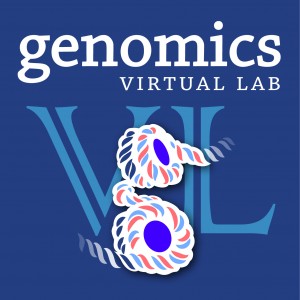 |
Taking the Genomics Virtual Laboratory to Europe
EMBL-ABR Melbourne Bioinformatics Node Genomics Virtual Laboratory (GVL) expert, Simon Gladman is currently spending time with colleagues in the UK and EU working on some key bioinformatics problems and sharing some Australian know-how. Read his first blog post (https://www.melbournebioinformatics.org.au/projects-blog/uk-tour-2017/) covering public health workshops, hackathons and a joint ELIXIR/Galaxy/GOBLET training event. The highlight to date was an ELIXIR-UK hosted workshop, where the GVL was presented as a way of making cloud bioinformatics tools universally available to biologists and bioinformaticians throughout Europe. Our thanks to outgoing Deputy Director, EMBL-ABR, Vicky Schneider, who arranged this. |
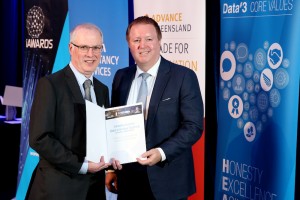 |
UQ and RCC Awarded Merit Certificate at QLD iAwards
The University of Queensland has received a merit award at this year’s Queensland iAwards in the category ‘Infrastructure & Platforms Innovation of the Year’, recognising significant innovations in high performance data-intensive infrastructure, including the FlashLite computer and the storage fabric Metropolitan Data Caching Infrastructure (MeDiCI). Together they provide unprecedented ability to store and process large amounts of research data, involving computers and instruments on campus, and computers and storage off-site. Pictured is Research Computing Centre Director Prof David Abramson at the State Gala in Brisbane on Wednesday, 7 June. See: https://rcc.uq.edu.au/article/2017/06/uq-and-rcc-claim-merit-certificate-qld-iawards. |
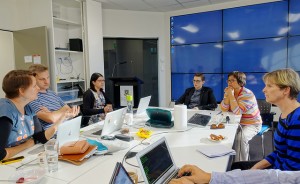 |
QCIF-led Project Tops Mozilla Global Sprint’s List
More than 100 contributors from seven countries (Australia, US, UK, the Netherlands, Canada, South Africa and New Zealand) took part in a QCIF/RCC-led project to extend Library Carpentry’s suite of lessons. This was the biggest of the 100+ projects in Mozilla Science Lab’s 2017 Global Sprint taking place worldwide on 1–2 June. For 48 hours work never stopped, with most working at one of the 13 registered sites while almost 40 people joined in remotely, keeping in touch via GitHub issues, the Library Carpentry chatroom (https://gitter.im/weaverbel/LibraryCarpentry), and Zoom videoconferencing sessions. See https://www.qcif.edu.au/index.php/news/291-qcif-led-project-tops-mozilla-global-sprint-s-list. |
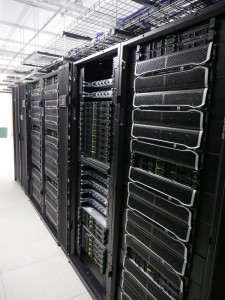 |
New Data Storage Solution at NCI
NCI has procured two innovative high-performance storage solutions to provide researchers with enhanced capacity and access to the latest developments in advanced data platforms. The new storage systems will replace NCI’s original 8 Petabyte Lustre filesystem with two systems totalling over 22 Petabytes. The additional systems will take NCI’s total data storage capacity to around 50 Petabytes, enabling NCI to continue to meet the demand for Australia’s rapidly expanding nationally significant data collections. Read more about this announcement at http://nci.org.au/2017/05/18/new-data-storage-solutions-meet-growing-demands-australian-researchers/. |
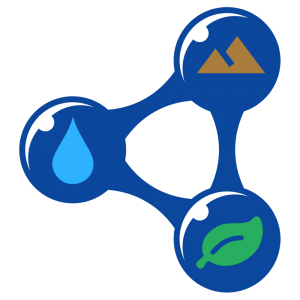 |
Cutting Edge Science Symposium – Linking Environmental Data and Samples
World leaders in earth and environmental science informatics gathered in Canberra in the last week of May 2017 at a Cutting Edge Science Symposium entitled ‘Linking Environmental Data and Samples’, which examined the state of the art in environmental science data publication and its use of modern web principles. Among the 70 participants, were 18 internationals and 20 early career researchers, drawn from the solid earth sciences, marine science, oceanography, ecosystems, biodiversity, soil science and remote sensing. Six NCRIS facilities contributed: NCI, ANDS, TERN, ALA, AuScope and IMOS. See: https://confluence.csiro.au/display/LEDS/Linking+Environmental+Data+and+Samples. |
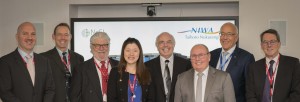 |
New Computing Platform to Power NZ Research
New Zealand’s research supercomputing organisation NeSI has announced a new integrated supercomputing platform to power computational and data intensive research in New Zealand. Science and Innovation Minister Paul Goldsmith announced the joint investment by NeSI and NIWA at the June 8 signing of a six-year contract worth $31.7 million with global supercomputer leader Cray Inc. This investment replaces and expands NeSI’s national compute and data platform, extending its scope and performance to meet changing needs, and will be commissioned by early 2018. For further information, see https://www.nesi.org.nz/news/2017/06/new-computing-platform-power-nz-research. |
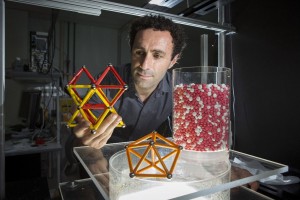 |
Scientists Discover Best Way to Pack Grains and Drugs
Scientists have solved a problem that has baffled humans since Biblical times: achieving the most efficient packing of objects such as grains and pharmaceutical drugs. Lead researcher Dr Mohammad Saadatfar said the knowledge could be vital for building skyscrapers on sand, understanding how grains were stored in silos, or how drugs were packed and delivered to specific targets in the body. The international team used high-resolution CT scans and computer simulations together to reveal how spherical particles in a disordered arrangement settle and compact themselves into ordered patterns. More at http://nci.org.au/research/scientists-find-efficient-way-pack-grains-drugs/. |
Contributions
This newsletter is based on contributions provided by members of the eResearch community, and draws on news articles and newsletters published across the sector. The Newsletter is published around the 16th of each month. Please send any contributions (max. 150 words, plus a link and image) or pointers to any other relevant articles or newsletters to editor@aero.edu.au
Archives of these Newsletters are held at http://aero.edu.au/newsletters/.
Click HERE to add yourself to the eResearch Mailing List.
Thanks,
—AeRO Newsletter Editor

